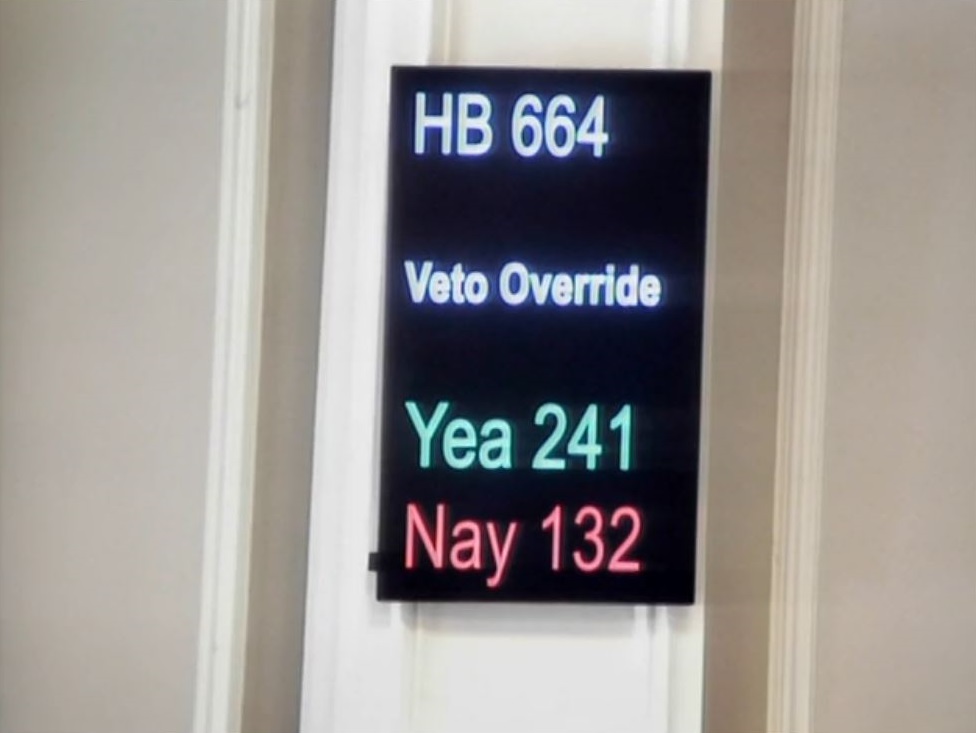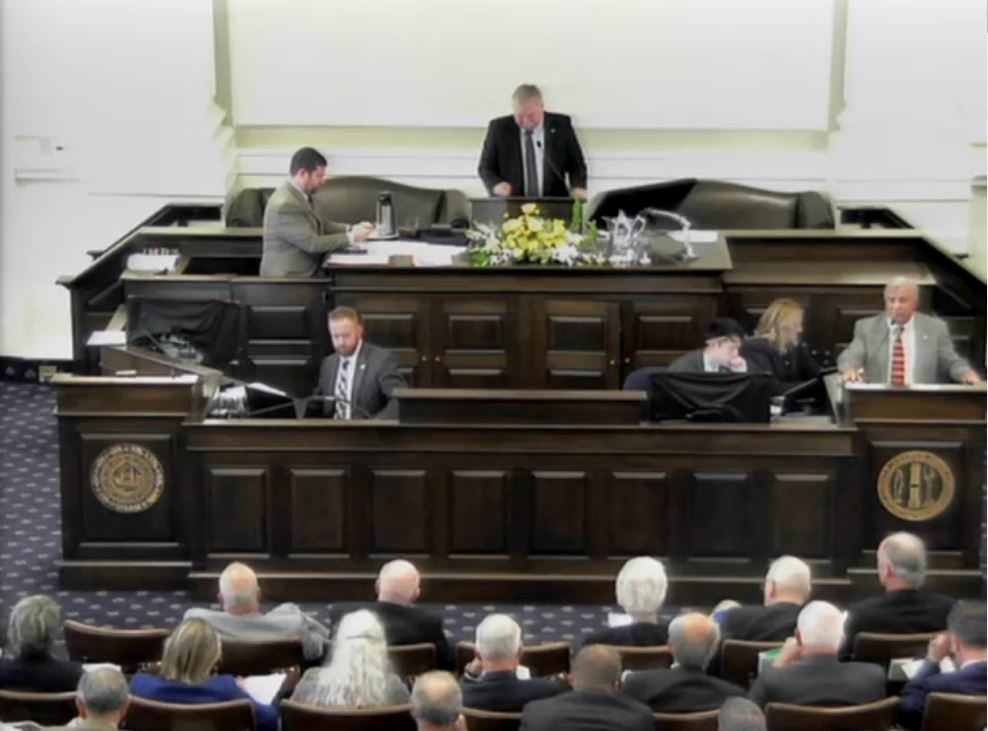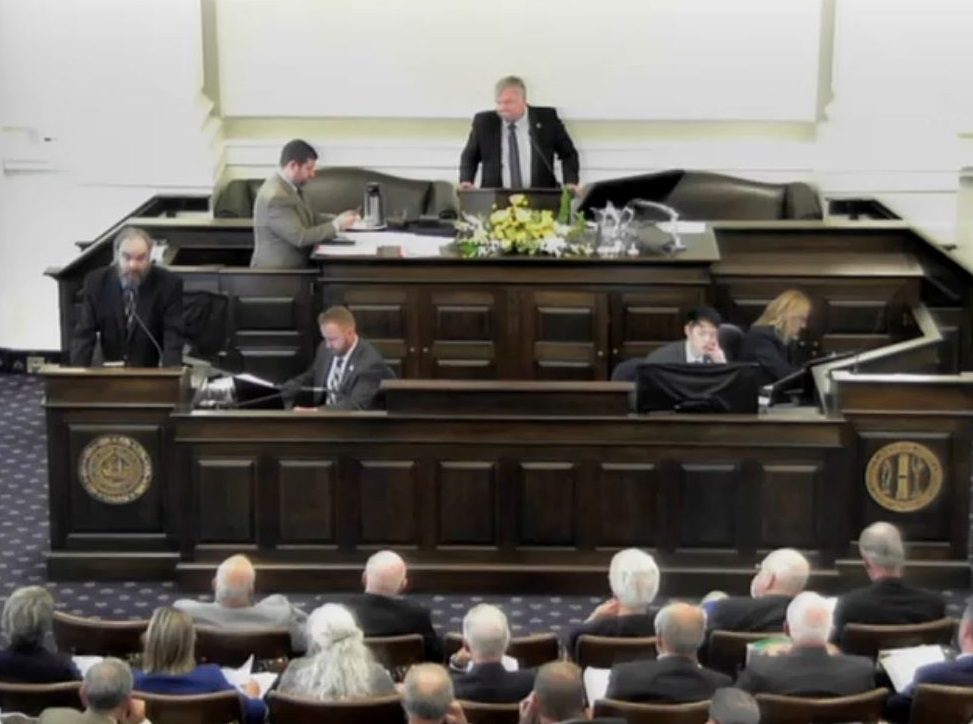
N.H. Legislature fails to override Sununu veto of OEM auto repair procedures bill
By onAnnouncements | Associations | Insurance | Legal
The New Hampshire House on Wednesday failed to override Republican Gov. Chris Sununu’s veto of House Bill 664, a bill requiring auto insurers to reimburse OEM repair procedures.
The override attempt failed 241-132 in the House, getting about 64.6 percent in favor instead of the two-thirds needed to succeed. The Senate did not vote.
“No insurance company, agent, or adjuster shall knowingly fail to pay a claim to the claimant or repairer to the extent the claimant’s vehicle is repaired in conformance with applicable manufacturer’s procedures,” the heart of HB 664 states. “Notwithstanding any statements or recommendations contained in the manufacturer’s procedures relative to the use of parts, governance of the use of any and all parts, in the course of an insurer-funded repair shall be solely dictated by RSA 407-D:3-a and not by a manufacturer’s recommendations or procedures.”
The House on March 19 had voted 247-101 in favor of an amendment carving out an exception for parts proposed by the House Consumer and Consumer Affairs Committee before approving the entire bill with a 242-105 vote. Some of the representatives who voted for the bill March 19 voted against overriding the veto on it Wednesday.
The version approved by the Senate by voice vote on June 6 retooled the bill significantly and received House approval later that month. It included that a glass repairer, auto body shop or insurer for all vehicles with ADAS must ”inform the consumer if a calibration of that system is required and if such calibration will be performed” if a glass repair or replacement is done.
If the repairer was performing a scan or calibration, they would “not be limited to tooling or equipment dictated or recommended by the manufacturer’s procedures or specifications” but must “calibrate an advanced driver assistance system meeting or exceeding the manufacturer’s procedures or specifications.”
The bill was the only one in a slew of OEM procedure legislation nationwide to have made it to a governor this session.
“New Hampshire citizens enjoy among the lowest auto insurance premium costs in the country,” Sununu wrote in his Aug. 15 veto message. “Current law ensures safe repairs while maintaining a competitive market. This bill would increase the cost of auto insurance premiums by limiting the ability of insurers to negotiate what is reasonable in the repair process.
“The requirements outlined in this bill would introduce a significant disadvantage for smaller independent repair shops and could limit their ability to compete. This limits consumer choice and raises insurance rates without the corresponding increase in safety for our citizens.”
However, all three national collision repair trade groups — whose membership tends to be smaller independent shops — opposed the veto in a recent counterpoint to Insurance Commissioner John Elias.
Elias had issued a neutral statement after the veto but then came out strongly against HB 664 in an op-ed published in the New Hampshire Union Leader Aug. 30. Senate Majority Leader Dan Feltes, D-Concord; HB 664 sponsor Rep. Kermit Williams; and House and Senate Commerce Committee Chairmen Ed Butler and Kevin Cavanaugh responded Sunday with another Union Leader op-ed urging colleagues to override the veto.
Elias’ Department of Insurance said Thursday it had no further comment following the House vote. Sununu’s office did not respond to a request for comment.
State Rep. John Hunt, R-Rindge, noted on the House floor Wednesday that Elias had “in no uncertain terms” instructed lawmakers to support Sununu’s veto because the bill would cause premiums to “go through the roof.”
Hunt said the issue of insurers ordering unsafe vehicles was a “red herring.”
“… This bill is simply about paying auto body shops more money,” he said.
He said insurers deny tests because they don’t want vehicles to total, and insurers “do not have an incentive, nor a desire, to send unsafe cars out on the road.”
Hunt said the bill wasn’t about an improper repair issue or OEM parts issue but “last sentence” of the bill. He appeared here to be referencing language stating “If a repairer does not accept a paint and materials estimate proposed by an insurer, the insurer shall reimburse the repairer based on any third-party guidelines generally accepted by automobile repair shops and insurers, and used by the repairer.”
“We’ll have the auto body shops determining how much they get, and the insurance company is not allowed to negotiate,” Hunt said. “That’s not right.”
Williams, D-Wilton, told the House that software calculated the necessary materials and steps necessary to perform the work, and an insurance adjuster might use the same software “to do his job.” The insurer was trying to ignore costs that came out of “their software” or another party’s, he said.
Williams said that in a low-unemployment state like New Hampshire, a good auto technician can “choose where they want to work.” If nearby states pass “fair reimbursement” laws and New Hampshire doesn’t, “the workforce will migrate to other states.”
Rhode Island already passed similar legislation in 2018, contrary to an assertion by Hunt that no other states had done so.
Williams said the bill had never been a partisan issue: It was a consumer and small-business matter, he said.
HB 664 emerged from a majority-Republican study committee created by a 2018 bill, he said. The committee’s report received unanimous support from the bipartisan panel, and the collision repairers coming to the Legislature “were mainly Republicans.”
The bill had four Republican and four Democratic sponsors, and had been “sailing along on a bipartisan wave” until Sununu vetoed it, Williams said.
Far from being a “giveaway,” it was necessary to keep body shops in business, Williams said. Some repairers came to Concord 20 times or more “because they need help.” Repairers with little leverage over insurers are seeing a “squeeze” by insurers to maximize the carrier’s own profits, he said.
Local businesses have more than just an “economic stake” in repairs — “it’s personal,” Williams said. He said multiple stories had arisen about body shops eating the cost of repairs an insurer refused to reimburse because the repairer knew ” “the car was not properly fixed without them.”
The bill wasn’t a “bonanza” for repairers, Williams said. “This is just about fairness,” he said.
Be heard: Contact information for New Hampshire lawmakers can be found here and here.
More information:
New Hampshire veto override discussion on HB 664 (Starts around 3:04:24)
New Hampshire House, Sept. 18, 2019
The New Hampshire House is shown Oct. 11, 2013. (kickstand/iStock)
The New Hampshire House on Sept. 18, 2019, failed to override Republican Gov. Chris Sununu’s veto of House Bill 664, a bill requiring auto insurers to reimburse OEM repair procedures. (Screenshot from New Hampshire House video)



